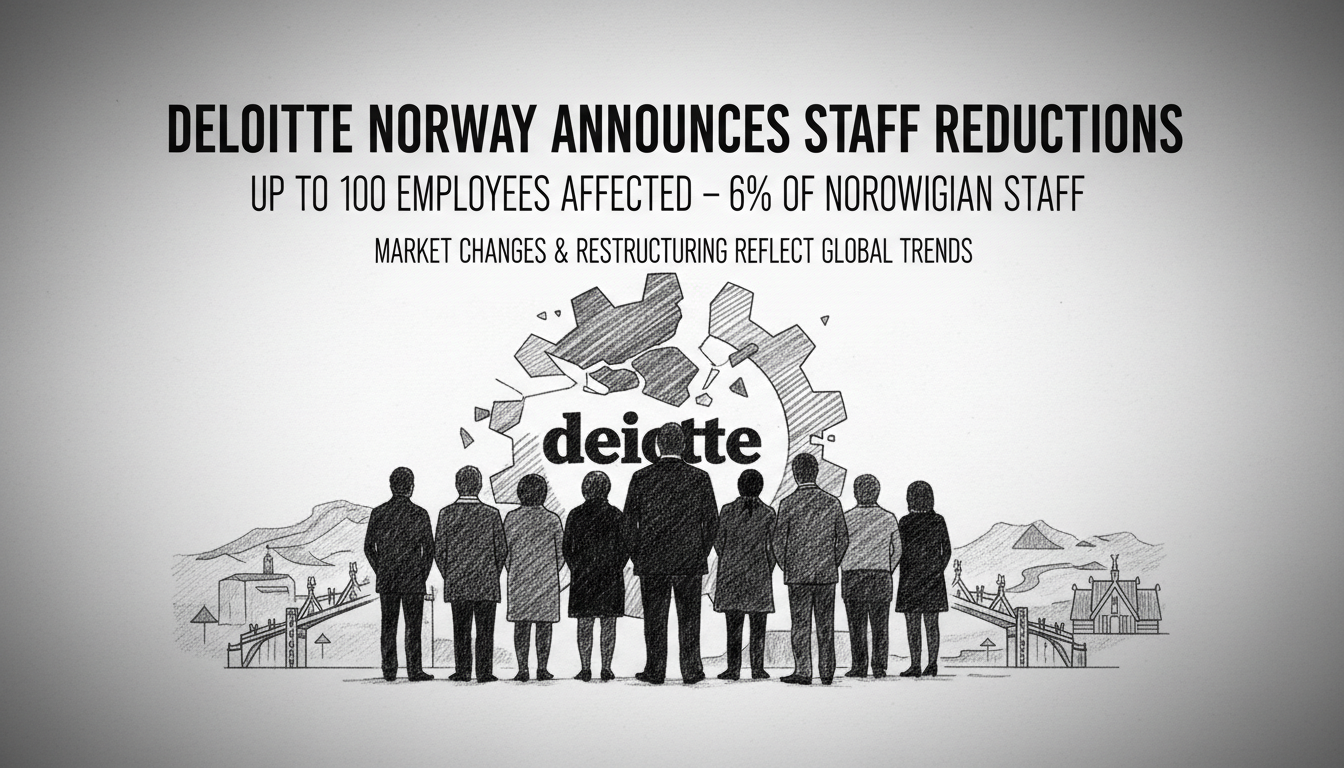Deloitte Norway is implementing significant workforce reductions that could impact up to 100 employees. The consulting firm confirmed the job cuts in an official statement released this week.
The restructuring represents approximately 6 percent of Deloitte's Norwegian workforce. Company leadership described the decision as particularly difficult given the personal impact on dedicated staff members.
Cecilia Flatum, Deloitte Norway's Managing Director, addressed the challenging nature of this organizational change. She stated that informing valued colleagues about job losses represents one of the most difficult responsibilities corporate leaders face.
Market shifts and changing client demands drove the restructuring decision. The company also cited overcapacity and reduced project assignments as contributing factors.
Earlier this year, Deloitte began divesting from regional operations by selling 13 Norwegian offices to Cedra. This transaction forms part of broader industry consolidation affecting Norway's consulting and auditing sector. Other major firms have undertaken similar strategic moves in recent months.
Flatum explained the strategic rationale behind these organizational changes. The company aims to align its service delivery with current client expectations while developing competitive operational models for future market conditions.
Rapid societal and technological transformation continues reshaping the professional services landscape. Clients increasingly demand more sophisticated solutions while technological advancement alters required skill sets. Deloitte's restructuring positions the firm to maintain market leadership through targeted competency development.
Norway's consulting sector faces particular challenges amid economic uncertainty and shifting corporate spending patterns. International consulting firms operating in Nordic markets must balance global strategies with local market realities. The Norwegian business environment presents unique considerations including labor regulations and competitive dynamics.
Workforce reductions of this scale typically trigger Norway's strict worker protection protocols. Affected employees generally receive notice periods, severance packages, and outplacement support according to national labor standards.
The consulting industry's current restructuring reflects broader economic trends affecting professional services globally. Digital transformation and automation continue reshaping traditional consulting models while client expectations evolve toward more specialized, technology-enabled services.
What does this mean for Norway's professional services sector? The Deloitte reductions signal ongoing market correction within the consulting industry. Other major players may follow similar paths as they adjust to changing demand patterns and economic conditions.
International businesses operating in Norway should monitor these developments closely. The restructuring could affect service availability and competitive dynamics within the country's professional services market. Companies relying on consulting support may need to reassess their service provider relationships.
The Norwegian consulting sector remains in flux as major players recalibrate their operations. Deloitte's workforce reduction represents a strategic response to market realities rather than an isolated incident. Industry observers expect further consolidation and restructuring across the professional services landscape.

